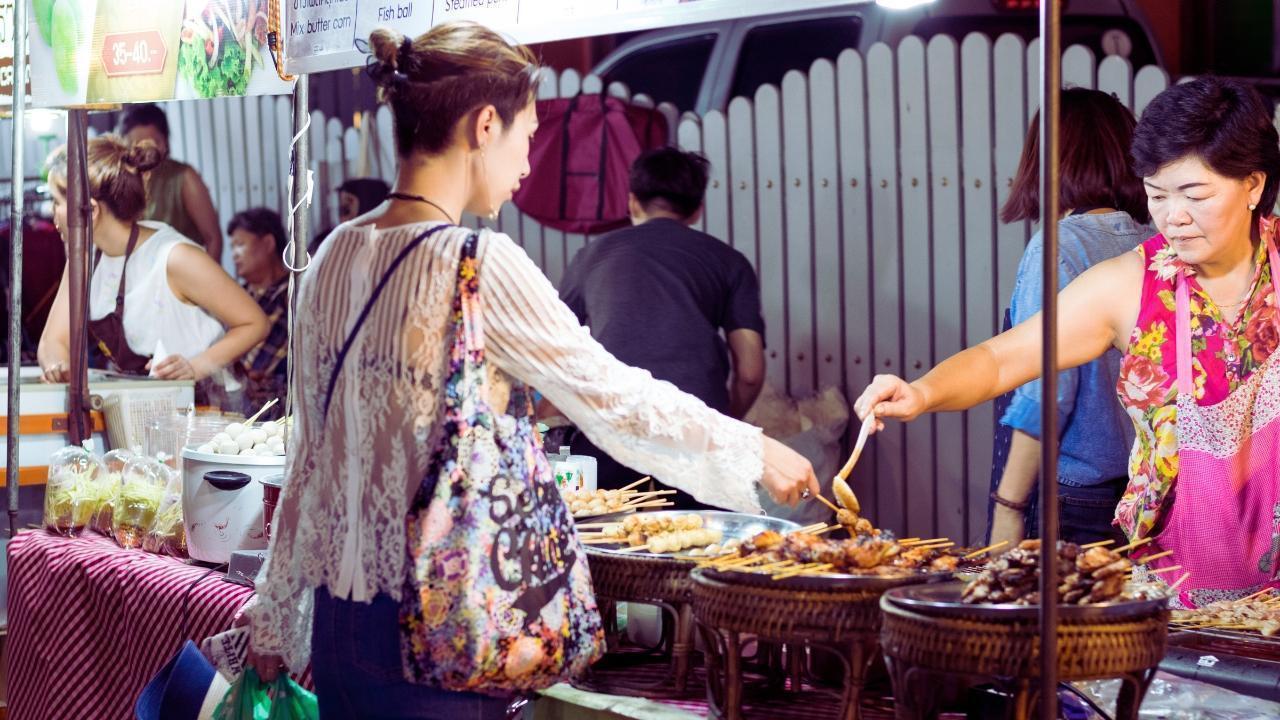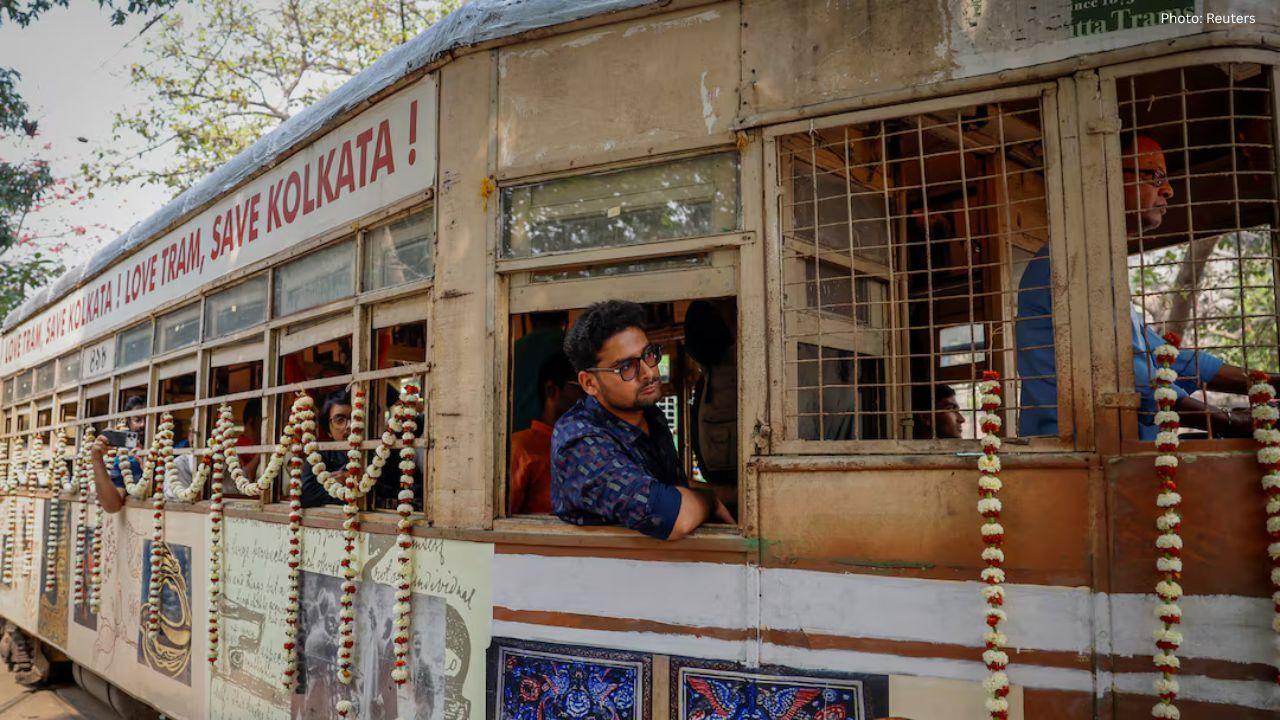You have not yet added any article to your bookmarks!

Join 10k+ people to get notified about new posts, news and tips.
Do not worry we don't spam!

Post by : Anis Farhan
Street food has long been the heartbeat of Asia’s soul—sizzling woks, fragrant skewers, and humble stalls packed side by side under makeshift tents. But once considered informal and fleeting, these street-side meals are now earning serious global respect. Thanks to prestigious culinary awards, formal recognition, and city-wide designations, street food is stepping into the spotlight—elevated from local craving to celebrated gourmet.
Let’s explore how the world is reevaluating what fine dining can be—and why the real flavor might just be found on a humble street corner.
In Bangkok, Supinya “Jay Fai” Junsuta is a culinary legend. Her one-woman hawker stall, serving luxury versions of Thai comfort dishes like crab omelettes and drunken noodles, earned her the Icon Award for Asia in 2021 and a coveted Michelin star, making her the first street food chef in Thailand to receive such recognition.
What makes Jay Fai remarkable isn’t just her innovative cooking—but the authenticity she preserves. She remains the sole cook, preparing each dish personally, with royal crab in hand and trademark red lipstick. Her recognition signals a sea change: street food is no longer just casual—it can be iconic, artisanal, and world-class.
Recognition isn’t limited to chefs—it extends to entire cities. In 2024, Hanoi was named “Best Culinary City in Asia” by the World Culinary Awards, edging out culinary powerhouses like Bangkok, Seoul, and Tokyo. Previously, in 2023, it had already been dubbed “Asia’s Best Emerging Culinary Destination”.
These accolades reflect Hanoi’s dynamic culinary identity—where street stalls dishing out pho, bun cha, and bánh mì line ancient sidewalks, competing with upscale cafes and modern dining. It’s a city where street food carries cultural heritage and global acclaim in equal measure.
Asian street food is also making waves beyond the region. In the U.S., Hai Hai, a Minneapolis restaurant serving Southeast Asian street eats, helped its chef Christina Nguyen win Best Chef Midwest at the James Beard Awards. Her famed Balinese chicken dish has rewritten expectations about fine dining origins—it was born from street food traditions.
These award wins show that the recipes typically confined to market stalls can be elevated and celebrated globally—and that authenticity can transcend venues.
Street food is more than flavor—it's culture, storytelling, and memory. Institutions are now honoring this rich heritage. The World Culinary Awards, among others, highlights culinary festivals, training institutions, and even entire cities—not just fine-dining venues. Meanwhile, UNESCO’s Gastronomic Creative City designation spotlighted Lucknow for its rich Awadhi street and royal food culture—affirming that street gastronomy deserves preservation and celebration.
These awards recognize that street food isn’t fleeting. It forms the pulse of local culture and now holds real global influence.
1. Authenticity and Accessibility
Street vendors serve real food—often recipes passed down through generations. There’s no pretense, just honest flavors and raw talent.
2. Cultural Resonance
A meal from a street cart carries entire cultural narratives—from spices to cooking methods to communal eating customs.
3. Tourism and Global Curious Palates
Travelers crave experiences rooted in place. And nothing embodies “place” better than flavorful bites under a neon-lit awning.
4. Media and Social Buzz
Food shows, blogs, and social media amplifiers turn hidden gems into must-try destinations—powering award season attention.
While the spotlight is welcome, it also brings pressures:
Commercialization vs. Authenticity: Can a hawker preserve flavor when foot traffic triples?
Infrastructure and Licensing: Some cities lack proper regulation for street vendors, risking safety or displacement in the face of popularity.
Balancing Heritage and Modernity: Cities must protect local identity even as they cater to culinary tourism.
It’s a fine line—but one that many communities are navigating with care.
As culinary awards broaden their horizons, expect more street chefs and food cities to shine. Imagine markets in Penang or Mumbai become official global food stops, or street dishes become Michelin-recognized staples worldwide.
For food lovers, this means deeper connection—and more reasons to travel for flavor at its truest.
This article is intended for informational purposes only and combines recent award recognitions, journalistic coverage, and cultural observations. Readers are advised to check official sources or event organizers for the latest on award winners and culinary designations.










Two Telangana Women Die in California Road Accident, Families Seek Help
Two Telangana women pursuing Master's in the US died in a tragic California crash. Families urge gov

Ranveer Singh’s Dhurandhar Roars Past ₹1100 Cr Worldwide
Ranveer Singh’s Dhurandhar stays unstoppable in week four, crossing ₹1100 crore globally and overtak

Asian Stocks Surge as Dollar Dips, Silver Hits $80 Amid Rate Cut Hopes
Asian markets rally to six-week highs while silver breaks $80, driven by Federal Reserve rate cut ex

Balendra Shah Joins Rastriya Swatantra Party Ahead of Nepal Polls
Kathmandu Mayor Balendra Shah allies with Rastriya Swatantra Party, led by Rabi Lamichhane, to chall

Australia launches review of law enforcement after Bondi shooting
Australia begins an independent review of law enforcement actions and laws after the Bondi mass shoo

Akshaye Khanna exits Drishyam 3; Jaideep Ahlawat steps in fast
Producer confirms Jaideep Ahlawat replaces Akshaye Khanna in Drishyam 3 after actor’s sudden exit ov